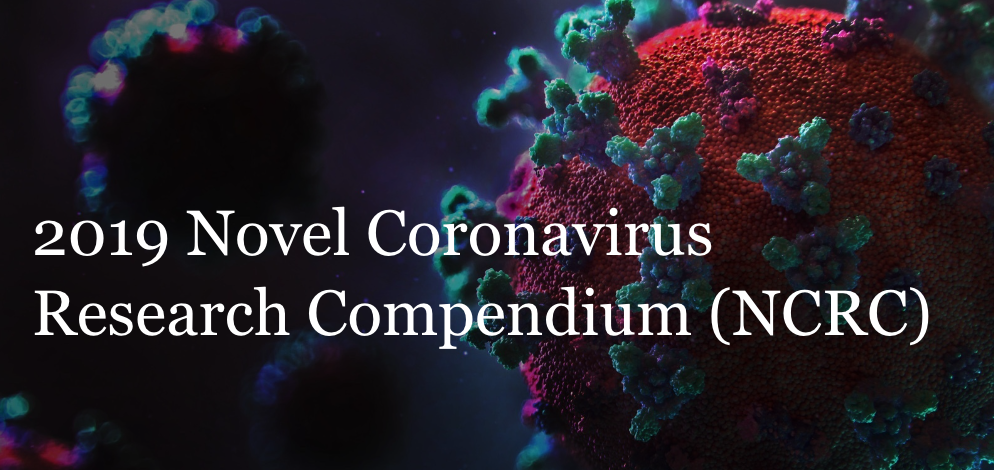Phase II Clinical trial for Evaluation of BCG as potential therapy for COVID-19
This article has been Reviewed by the following groups
Discuss this preprint
Start a discussion What are Sciety discussions?Listed in
- Evaluated articles (ScreenIT)
- Evaluated articles (NCRC)
Abstract
Bacillus Calmette−Guérin (BCG) is widely used in national vaccination programs worldwide. It is accepted that BCG alleviates both pathogen and allergy induced respiratory diseases that could also include Covid-19. To investigate this possibility, we randomly assigned 60 Covid-19 patients, after admission to the hospital with pneumonia and requirement for oxygen therapy in a 1:1 ratio to receive either a single adult dose of intradermal BCG or normal saline with concomitant standard of care (SoC) medications. Primary endpoints were favorable prognosis of Covid-19 as deduced from resolution of pneumonia, viremia and secondary outcome were enumeration of ICU admissions, duration thereof and mortalities.
Results
Both primary and secondary endpoints were significantly improved in the BCG+SoC group. This could be seen from reduction in oxygen requirement due to Covid-19 associated pneumonia decreasing from day 3-4, improved radiological resolution from day 7-15. There were a total of 6 (10%) adverse events in the study of which 2 deaths and 4 ICU admissions were in SoC group (1 ICU admission culminated in death of the subject) and in contrast only 1 ICU admission in the BCG+SoC group. While there was an increase in Covid-19 specific IgG levels in the BCG+SoC group, there was no evidence of BCG induced cytokine storm in this group. Four patients showed localized inflammatory response at the injection site in the BCG+SoC group.
Conclusions
BCG+SoC administration resulted in a significantly higher percentage of patients with favorable outcomes than did SoC. A third of the patients were naïve for childhood BCG vaccination. This mimicked elderly patients in countries with no universal vaccination policy for BCG. No BCG related adversity was seen in this group. The study shows that BCG is a safe, cost-effective treatment that can be introduced as a standard of care in patients with moderate Covid-19 that can reduce requirement of oxygen supplemented beds and disease burden in low resource countries, with additional long-term benefits of reducing risk for tuberculosis.
Article activity feed
-

SciScore for 10.1101/2020.10.28.20221630: (What is this?)
Please note, not all rigor criteria are appropriate for all manuscripts.
Table 1: Rigor
Institutional Review Board Statement IACUC: Ethical approval was obtained from the Institutional Ethics Committee (IEC) of the BJ Medical College & Sassoon Hospital, Pune.
Consent: Written informed and videographic consent was obtained from all patients.Randomization not detected. Blinding not detected. Power Analysis not detected. Sex as a biological variable not detected. Table 2: Resources
Software and Algorithms Sentences Resources All statistical tests and graphs were performed by GraphPad Prism 5.0 (GraphPad software, San Diego, CA). GraphPadsuggested: (GraphPad Prism, RRID:SCR_002798)Results from OddPub: We did not detect open data. We also did not detect open code. Researchers are encouraged to share …
SciScore for 10.1101/2020.10.28.20221630: (What is this?)
Please note, not all rigor criteria are appropriate for all manuscripts.
Table 1: Rigor
Institutional Review Board Statement IACUC: Ethical approval was obtained from the Institutional Ethics Committee (IEC) of the BJ Medical College & Sassoon Hospital, Pune.
Consent: Written informed and videographic consent was obtained from all patients.Randomization not detected. Blinding not detected. Power Analysis not detected. Sex as a biological variable not detected. Table 2: Resources
Software and Algorithms Sentences Resources All statistical tests and graphs were performed by GraphPad Prism 5.0 (GraphPad software, San Diego, CA). GraphPadsuggested: (GraphPad Prism, RRID:SCR_002798)Results from OddPub: We did not detect open data. We also did not detect open code. Researchers are encouraged to share open data when possible (see Nature blog).
Results from LimitationRecognizer: An explicit section about the limitations of the techniques employed in this study was not found. We encourage authors to address study limitations.Results from TrialIdentifier: No clinical trial numbers were referenced.
Results from Barzooka: We did not find any issues relating to the usage of bar graphs.
Results from JetFighter: We did not find any issues relating to colormaps.
Results from rtransparent:- Thank you for including a conflict of interest statement. Authors are encouraged to include this statement when submitting to a journal.
- Thank you for including a funding statement. Authors are encouraged to include this statement when submitting to a journal.
- No protocol registration statement was detected.
-

Our take
This is a promising report, available as a preprint and thus not yet peer reviewed, on the usea small trial of intradermal BCG injection for patients requiring hospitalization for COVID-19 in India. Patients who received BCG during their hospitalization showed improvement in their blood oxygen saturation and resolution of imaging findings of pneumonia, without causing a cytokine storm, compared to those receiving standard of care. This study trial supports exploring BCG in larger trials as a possible treatment option for COVID-19, even in countries that do not have national BCG vaccination programs.
Study design
randomized-controlled-trial
Study population and setting
This phase 2 study took place in Pune, India, and the aim was to study effectiveness and safety of intradermal Bacillus …
Our take
This is a promising report, available as a preprint and thus not yet peer reviewed, on the usea small trial of intradermal BCG injection for patients requiring hospitalization for COVID-19 in India. Patients who received BCG during their hospitalization showed improvement in their blood oxygen saturation and resolution of imaging findings of pneumonia, without causing a cytokine storm, compared to those receiving standard of care. This study trial supports exploring BCG in larger trials as a possible treatment option for COVID-19, even in countries that do not have national BCG vaccination programs.
Study design
randomized-controlled-trial
Study population and setting
This phase 2 study took place in Pune, India, and the aim was to study effectiveness and safety of intradermal Bacillus Calmette-Guerin(BCG) injection in adults hospitalized with hypoxia and pneumonia from COVID-19. Participants were PCR-confirmed men and non-pregnant women between the ages of 18 and 60 years that had COVID-19 symptom onset within 12 days prior to enrollment. The 60 participants were randomized 1:1 into the BCG + standard of care (BCG + SoC) and placebo (SoC) groups. A single dose of BCG was administered on day 0, and blood and nasopharyngeal swabs were collected on days 0, 7, and 15. The study was divided into two patient cohorts: one from May 6 to June 15, 2020, and one from June 15 to August 5, 2020.
Summary of main findings
Blood oxygen saturation was higher in the BCG+SoC group compared to the SoC only group, with roughly two-fold faster resolution of COVID-19 induced hypoxia. The BCG+SoC group also experienced greater improvement in their chest CT findings compared to the SoC group. Those in the SoC group who had received BCG vaccination in the past appeared to have better improvement of oxygenation during the study. There were less ICU admissions and mortalities in the BCG+SoC group, and the administration of BCG did not cause a cytokine storm in patients. Viral load appeared to decrease over time in the BCG+SoC group in the first cohort of patients, but this did not hold true in the second cohort.
Study strengths
Few adverse effects were recorded in this study. The trial included a placebo group that received saline injection in the place of the BCG vaccination. Additionally, the participants were patients actually hospitalized with COVID-19.
Limitations
The study only included 60 participants, with an unequal distribution of men and women. There was also no data on the ethnicity of the participants provided. Finally, slightly different results regarding clearance of viral load were found in the two different testing time periods, and therefore the authors posit that there may have been two different SARS-CoV-2 strains involved. However, viral samples will need to be sequenced in order to determine if this is the case.
Value added
Study showing potential benefits of BCG vaccination as treatment for COVID-19 illness.
-


